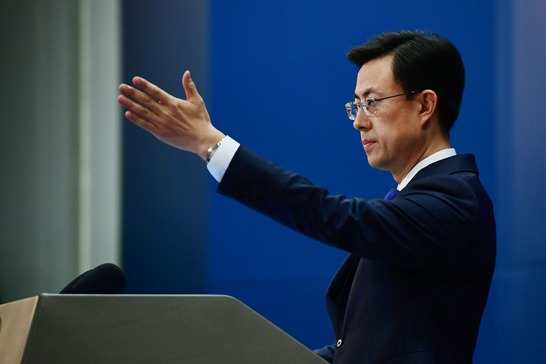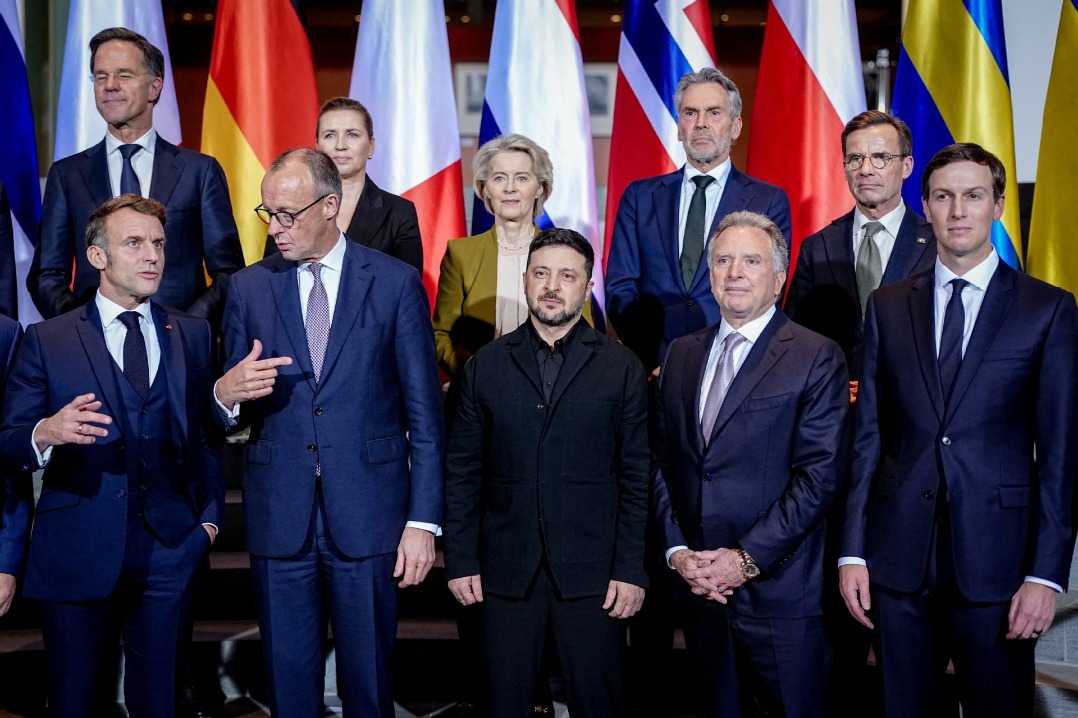Anti-China step seen hitting US tech firms
Biden order limits further investment in advanced sectors despite local impact


Biden order limits further investment in advanced sectors despite local impact
US President Joe Biden on Thursday signed an executive order to further restrict foreign investment in US technologies, in yet another move aimed at containing China's technological development.
The order directs the Committee on Foreign Investment in the United States, or CFIUS, to further scrutinize foreign investments and transactions related to national supply chains and in tech sectors.
Although the order did not mention China by name, it said targets are "particularly those from competitors or adversarial nations", the same language used in other anti-China policies.
The White House said Thursday's executive order is the first, since the establishment of the CFIUS in 1975, to identify additional national security factors.
It points out several areas for the committee to pay closer attention to, such as microelectronics, artificial intelligence, biotechnology and biomanufacturing, quantum computing, advanced clean energy, and climate adaptation technologies.
The order said the committee, when reviewing transactions, should consider the effect on the resilience of critical US supply chains, US citizens' sensitive data and cybersecurity risks.
The CFIUS, led by the Treasury Department and including top officials such as those from the Justice and Homeland Security departments, investigates acquisitions involving foreign companies that may pose national security risks.
The committee has been scrutinizing TikTok, a popular Chinese video-sharing app. In August 2020, president Donald Trump issued an executive order, using the CFIUS investigation to direct TikTok's parent company, ByteDance, to divest its US assets.
Experts questioned the unusual legal basis for Trump's actions against the Chinese company. When Biden took office in January 2021, he did not enforce the divestment order, and ByteDance didn't sell.
The Biden administration is reportedly considering placing new regulations on US shipments of advanced semiconductor chips and chipmaking equipment to China. Such considerations come after the president signed the CHIPS and Science Act into law last month to boost the nation's domestic semiconductor manufacturing.
The Commerce Department will formalize the licensing rule for US companies to export the highly advanced semiconductor chips to China next month, according to Reuters. US companies seeking to export the equipment to China must obtain a license from the department.
The rule is expected to hurt such companies' revenues. Lam Research, a major semiconductor manufacturing equipment company in the US, reported that China represented 31 percent of its revenue in the June quarter of this year.
The White House is also considering issuing another executive order to create a screening mechanism for outbound US investment, just one of many efforts to make it harder for China to obtain cutting-edge technology.
Semiconductor industry experts have expressed concerns over the government's intervention, saying that China is a critical market.
US companies account for 47 percent of global revenue in the semiconductor industry, with China being a key market, according to Stephen Ezell, vice-president of global innovation policy at the Information Technology and Innovation Foundation in Washington DC.
"Thirty-six percent of US semiconductor industry sales are to Chinese enterprises, making access to the Chinese market critical to American companies," he said in a webinar early this year.
The Chinese market is critical also because the revenues from the Chinese market enable the US companies to reinvest in future generations of innovation, he added.
liazhu@chinadailyusa.com
































